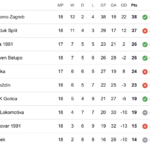May 1, 2019 – The relationship between Croatia and its diaspora has always been complex, but a new positive wind of change will be on display at the 2nd International Conference on Diaspora Tourism.
One of the most fascinating relationships in this very complex land is that between Croatia and its diaspora, a relationship which is more complicated than most longterm relationships.
It is also multi-faceted, with four main waves of emigration over the last 200 years to all corners of the globe. The reasons for each wave varied from economic to political persecution to war to economic. As such, the experiences of the diaspora and the individual relationships of members of the diaspora is very different. Those who are second or third generation descendants of Croats who moved to Australia due to persecution from Tito, for example, will have grown up in Croatian Australian communities with a very different outlook on the homeland than those who are descendants of economic migrants after the devastating phylloxera in the late 19th century now in Cleveland, Ohio. You can learn more about the waves of Croatian emigration and where the Croatian diaspora is located in the Total Croatia intro to the Croatian diaspora.
But the diaspora all have one thing in common – a burning love of the homeland and a very strong patriotism.
And even though they pay no taxes but have the vote, the diaspora certainly put their hand in their pockets, with diaspora remittances of 2 billion euro exceeding the total foreign investment into Croatia in 2018. Every statistic tells a story.
They certainly put their hands in their pockets during the Homeland War, as well as immediately afterwards, pouring investment cash into the newly independent Croatia. Unfortunately, the mighty State of Uhljebistan was formed at the same time, a State which continues today within Croatia. Money was siphoned off, projects never happened, a small number in power got very rich.
Just one more layer of complexity to add to the diaspora relationship to the Homeland.
But the love for the Homeland was as strong as ever.
I was a speaker at the 3rd Croatian Diaspora Congress last year (you can see my speech below). It was a fascinating event, and at times I felt like an intruder as a non-Croat, especially during the emotional visit to the Vukovar Hospital Museum.
One of the most fascinating dynamics of the conference was observing the older diaspora generation, many of whom had experienced emigration at first hand, and the new generation entrepreneur, both diaspora and those living in Croatia.
There was a vibrancy and positivity and looking to the future that I found very exciting in this younger generation. The bonding and remembering of the past is, of course, an essential part of any diaspora gathering. But so too, at least in my opinion, these conferences should be used as opportunities to network and strengthen business bonds between the two.
There were elements of that in Osijek, a lot more of that at the excellent G.2 conference in Zagreb, but I think the best diaspora conference so far, in terms of looking ahead, is coming to Split in a couple of weeks. Looking at the lineup of panels and speakers, the 2nd International Conference on Diaspora Tourism, is set to bring together a global force of positivity and entrepreneurship, which could do wonders for a new relationship between the younger generation diaspora and Croatia’s successful entrepreneurs.
Minutes after I published the event announcement a few weeks ago, I received a message from a TCN reader in South Africa asking if I thought it was worth attending, as it was an expensive trip from Cape Town. Yes, I replied, without hesitation. A similar question from an Australian Croatian friend living in Dalmatia, who has traditionally been wary of these gatherings. She will always be there.
A crucial difference in the organisation of this conference is that most of the organisers come from successful business backgrounds, and while all are proud patriots and remember the past, they also see the economic opportunity and chance to strengthen the bonds of cooperation and business, for the greater good of Croatia.
As one of the organisers and proponents of change, Ognjen Bagatin from Bagatin Clinic, often says in his presentations to the diaspora:
“We need you. You are our greatest ambassadors.”
This relationship between Croatia’s entrepreneurs and the business-minded diaspora is young, but very exciting. Mistakes will be made, but after the negative impressions after the investments after the Homeland War, trust is slowly building up again.
If you are an entrepreneur with a love of Croatia, this conference should be an inspiration, with plenty of first-hand experiences of success stories, as well as opportunities for collaboration. I encourage you to attend.
And, being as useless as I am, I cannot now find the conference programme, which I will link here as soon as I do.
To learn more about the conference, visit the official website.










